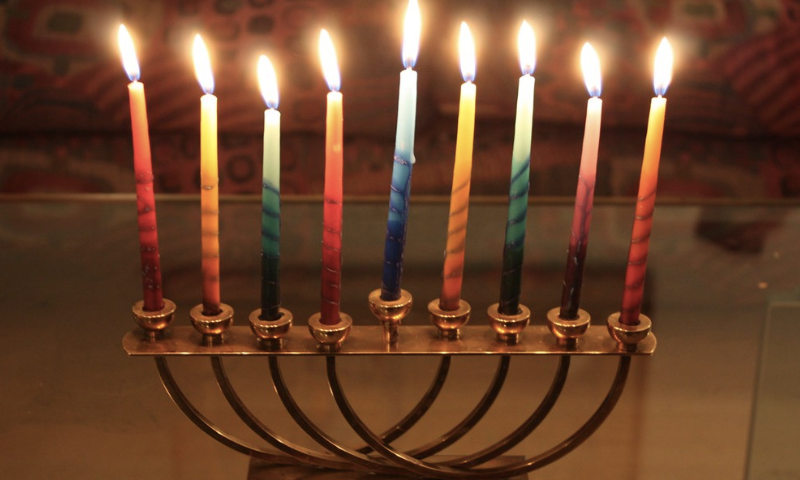Meir Soloveitchik
The Free Press, Dec. 26, 2024
“Churchill understood that the fire of Sinai was not only on that mountain, but also in Moses’s heart.”
In darker times we look for light.
Among Jewish images of illumination there are few more inspiring than one taken in the German city of Kiel in 1931. Akiva Posner, rabbi of the Jewish community in Kiel, had set up his menorah on the windowsill on the eighth night of Hanukkah. Before the sun set, before the ceremony began, his wife, Rachel, saw that the menorah was facing, across the street, a symbol of a very different kind: an enormous swastika hung by local Nazis.
She was struck by the jarring juxtaposition, seeing in the menorah a response to the Nazi banner. So Rachel seized her Kodak camera and took a picture—one which has justifiably now become one of the more famous in the Jewish world.
But to truly be inspired by it we must understand its meaning. Dwight Eisenhower, arriving at the concentration camps, ordered the men serving under him to enter the camp in order to witness the horror, saying something to the effect of: If the American soldier did not know what he was fighting for, now at least he will know what he is fighting against. Ideally we should know both what we fight against and what we fight for.
Rachel Posner captures both in a single image: in the Nazi symbol, what the Jewish people have always had to fight against. But in the menorah, what the Jewish people have to fight for—for the sanctity of human life, for the holiness of the family, for a set of Jewish doctrines and ideas that stood against an entire pagan world and preserved biblical monotheism for posterity.
There are those who have sneered at the miracle marked through the kindling of candles, mocking the remembering of a single flask of oil that lasted for so much longer than expected. One of them was Christopher Hitchens. Hitchens gave us an article in 2007 making fun of the Hanukkah miracle: “Epicurus and Democritus had brilliantly discovered that the world was made up of atoms, but who cares about a mere fact like that when there is miraculous oil to be goggled at by credulous peasants?” …SOURCE


